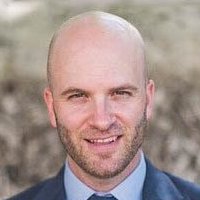
David Bank

Dennis Price
A SOCAP Guest Post By Dennis Price and David Bank
As we prepare to convene in San Francisco for SOCAP17 we asked several of our media partners to share a few of their most timely and important news stories with the SOCAP community. This week’s suggested reading comes from ImpactAlpha.
Impact is a big story. The greatest wealth- and value-creation opportunity of the millennium (to date), social and environmental value will drive global growth and sustainable, inclusive prosperity for decades.
Call it impact, call it the 2030 Global Goals, call it the regeneration of people and planet. It’s bigger than tech, and indeed, is tech’s next wave. Oh, the $300 trillion global capital markets will be transformed as well.
ImpactAlpha is all over that story. Our small but scrappy team is on the beat. Our newsletter, The Brief, goes out daily to tens of thousands of investment professionals, business leaders and global influencers (sign-up here!). Our Returns on Investment podcast and ImpactAlpha.com site bring it all together. Our Impact Voices section features guest posts from leading impact investing practitioners.
On the 10th anniversary of SOCAP let’s not only look back, but ahead, to 2030 and beyond. Here are five impact storylines that we’re tracking.
1. Impact is the global growth story.
Across just four Sustainable Development Goal-aligned sectors, a group of business leaders have identified new market opportunities worth $12 trillion a year in savings and revenues. Private-equity investor Arif Naqvi, whose Abraaj Group has $10 billion invested in megacities like Lagos, Nairobi and Mumbai, has declared investments in the global goals a “trade-on,” not a trade-off – an opportunity to scale financial returns by driving social value. But do the SDGs go far enough in tackling the root causes of the problems we’re trying to solve? Asks SVX Mexico’s Laura Ortiz.
2. Exclusion is a bug. Impact is fixing it.
In his new book, Village Capital founder Ross Baird blames investor blind spots that limit where, and to who, capital is flowing — and hurt job-creation and community health. Neighborhood economics is building a model to help under-resourced communities build entrepreneurial ecosystems. Steve Case’s “Rise of the Rest” tour continues to tee up entrepreneurs in small American cities between the coasts that are solving social, environmental, and community issues. Spreading VC funding beyond the usual hotspots and in particular to entrepreneurs who are women or people of color can reverse the 40-year decline in the rate of new business starts and usher in a true golden age of entrepreneurship.
3. Sustainability tipping points are nigh.
Investors are voting with their dollars and their shareholder resolutions that the low-carbon energy transformation is well under way. The cost of solar generation has fallen more than 60 percent since 2009 and could drop another 40 to 60 percent by 2025, making solar the cheapest form of energy almost everywhere in the world. Electric vehicles and battery storage are game-changers. With 60 percent of new utility-scale electricity generation in 2016 coming from wind and solar resources, renewable are no longer ‘alternative.’ Fossil fuels are ‘legacy.’
4. Impact is the next big tech story.
Technology is opening up entire new avenues for social and environmental impact, and impact is tech’s next challenge. Mobile, cloud and solar set the stage. Now comes blockchain-enabled transactions that raise trust and reduce time, costs and fraud. Kavita Gupta, the social finance whiz who was tapped to head the $50 million blockchain venture fund from Consensys says blockchain architecture “can enable solutions to almost any Sustainable Development Goal.” Algorithmic intelligence can be pointed at humanity’s grand challenges (as XPRIZE is doing). Urbantech startups selected by Urban X are tapping AI to make city life better.
5. The people want impact.
Populism isn’t just about reaction and retrenchment. Around the world, people are ready for a positive alternative with the ability to harness capital, the talent and the super-majority of public support for the transformational work at hand. “What if we could create good jobs, educate our kids, fix our electrical grids and sewers and roads, address climate change, and in so doing all of that, we could also jet-propel the economy, too?” wrote Nancy Pfund of DBL Partners and Fran Seegull, now head of the U.S. Impact Investing Alliance, ahead of last year’s election. Big banks, big corporations and big investors are shifting sides. As the splits widen, they’re going beyond ‘condemn and disband’ to ‘invest and transform.’
Featured image photo by Slava Bowman on Unsplash


